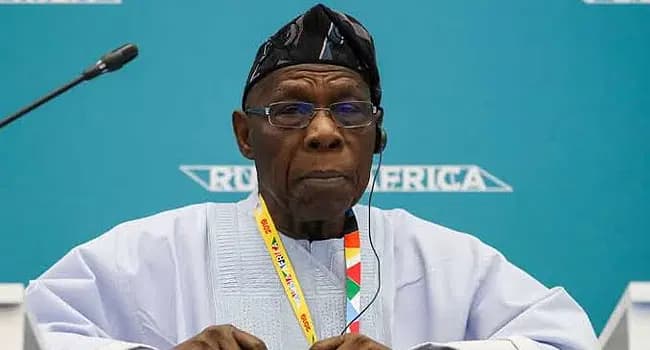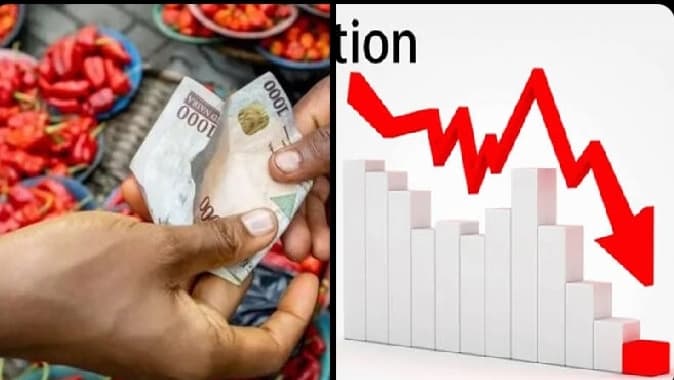n a series of stark warnings, former Nigerian President Olusegun Obasanjo has repeatedly described Nigeria and, by extension, Africa as “sitting on a keg of gunpowder.” This evocative metaphor, shared through various platforms and widely discussed on X between 2023 and 2024, underscores a deepening crisis fueled by economic hardship, rampant poverty, and youth unemployment. Obasanjo’s remarks serve as both a critique of current governance and a clarion call for urgent action to avert a potential catastrophe. In this blog post, we’ll unpack the context of his statements, explore the underlying issues, and consider what Nigeria must do to defuse this ticking time bomb.
The Context of Obasanjo’s Warning
Olusegun Obasanjo, a towering figure in Nigerian politics, served as president from 1999 to 2007 and has remained an influential voice in national and continental affairs. His recent comments, amplified through media reports and X posts, reflect growing concerns about Nigeria’s socio-economic trajectory. The phrase “sitting on a keg of gunpowder” is not new for Obasanjo; he has used it in various speeches to highlight the fragility of Nigeria’s stability amid mounting challenges. In 2023 and 2024, his warnings gained renewed urgency as Nigeria grappled with economic turmoil, including soaring inflation, a depreciating naira, and widespread protests like the #EndBadGovernance movement.
Obasanjo’s metaphor paints a vivid picture: a nation teetering on the edge of chaos, where systemic failures in governance and economic management are stoking public discontent. He points to the growing anger among Nigeria’s youth—over 60% of the population is under 25—as a critical flashpoint. With limited opportunities and rising costs of living, this demographic is increasingly disillusioned, and their frustration could ignite widespread unrest if left unaddressed.
The Root Causes: Hardship, Poverty, and Unemployment
At the heart of Obasanjo’s warning lies a trifecta of interconnected issues: economic hardship, poverty, and unemployment. Let’s break these down to understand why they pose such a significant threat.
1. Economic Hardship
Nigeria’s economy has faced severe challenges in recent years. The removal of fuel subsidies in 2023, while aimed at reducing fiscal burdens, led to skyrocketing fuel prices, which in turn drove up the cost of transportation, food, and other essentials. Inflation rates soared to over 30% in 2024, according to economic reports, eroding purchasing power and plunging millions into financial distress. The naira’s depreciation further exacerbated the crisis, making imported goods—on which Nigeria heavily relies—prohibitively expensive.
For the average Nigerian, these economic policies have translated into daily struggles. Families are forced to make impossible choices between food, healthcare, and education. Small businesses, the backbone of Nigeria’s informal economy, are collapsing under the weight of rising costs. Obasanjo has criticized these policies as poorly managed, arguing that they have deepened inequality and pushed more citizens into poverty.
2. Poverty
Nigeria is often referred to as the “poverty capital of the world,” with over 80 million people living below the international poverty line, according to World Bank estimates. This figure has likely worsened due to recent economic shocks. Rural communities, where access to basic services like electricity and healthcare is limited, are particularly hard-hit. Urban areas, meanwhile, are grappling with overcrowding, inadequate infrastructure, and a lack of affordable housing.
Obasanjo has emphasized that poverty is not just a statistic—it’s a breeding ground for despair and unrest. When people cannot afford basic necessities, they lose faith in the social contract. This disillusionment is especially pronounced among young people, who see little hope for a better future despite Nigeria’s vast natural resources and potential.
3. Youth Unemployment
Perhaps the most alarming aspect of Obasanjo’s warning is the crisis of youth unemployment. Nigeria’s unemployment rate stood at over 33% in 2023, with youth unemployment significantly higher. Millions of young Nigerians, including university graduates, struggle to find meaningful work. The lack of jobs is compounded by a skills mismatch, inadequate vocational training, and a sluggish industrial sector unable to absorb the growing labor force.
This unemployment crisis is a powder keg in itself. Idle youth, combined with economic frustration and exposure to global inequalities through social media, create a volatile mix. Obasanjo has warned that this demographic, if ignored, could channel their anger into protests, crime, or even insurgency. The #EndBadGovernance protests of 2024, which saw young Nigerians take to the streets to demand better governance and economic relief, are a case in point.
The #EndBadGovernance Protests: A Symptom of Deeper Issues
Obasanjo’s call to address the demands of the #EndBadGovernance protesters underscores the urgency of the situation. These protests, which erupted in 2024, were driven by widespread frustration with economic mismanagement, corruption, and the perceived insensitivity of Nigeria’s political elite. Demonstrators called for reforms to address inflation, unemployment, and insecurity, among other grievances.
Rather than dismissing the protests as disruptive, Obasanjo urged the government to listen and act. He argued that suppressing dissent without addressing its root causes would only delay the inevitable explosion. The protests, while largely peaceful, highlighted the growing divide between Nigeria’s leaders and its citizens, particularly the youth. For Obasanjo, they were a warning sign—a spark that could ignite the gunpowder keg if the underlying issues remain unresolved.
The Broader African Context
While Obasanjo’s remarks focus on Nigeria, he extends his warning to the African continent. Many African nations face similar challenges: youth unemployment, economic inequality, and governance failures. Countries like Kenya, South Africa, and Ghana have seen their own waves of protests in recent years, driven by economic hardship and dissatisfaction with leadership. Obasanjo’s message resonates beyond Nigeria, calling for African leaders to prioritize inclusive growth and youth empowerment to prevent widespread instability.
Defusing the Keg: A Path Forward
Obasanjo’s warnings are dire, but they also point to a way forward. To defuse the “keg of gunpowder,” Nigeria and other African nations must take bold, coordinated action. Here are some key steps:
1. Economic Reforms with a Human Face
Economic policies, such as subsidy removals or currency adjustments, must be accompanied by robust safety nets. Cash transfer programs, subsidized healthcare, and food assistance can cushion the impact on vulnerable populations. Transparency in how savings from reforms are reinvested—such as in infrastructure or education—can also rebuild public trust.
2. Massive Investment in Youth
Nigeria’s youth are its greatest asset, but they need opportunities to thrive. This requires:
-
Job Creation: Investments in agriculture, technology, and renewable energy can create millions of jobs. Public-private partnerships can drive industrial growth and absorb young workers.
-
Education and Skills Training: Reforming the education system to emphasize vocational training, digital skills, and entrepreneurship can prepare youth for the modern economy.
-
Youth Engagement: Creating platforms for young people to participate in governance—through advisory councils or policy forums—can channel their energy constructively.
3. Tackling Corruption
Corruption remains a major barrier to Nigeria’s progress. Funds meant for development are often siphoned off, leaving critical sectors like healthcare and education underfunded. Strengthening anti-corruption agencies, ensuring judicial independence, and promoting transparency in public spending are essential to restoring faith in governance.
4. Inclusive Governance
Obasanjo has stressed the need for leaders to listen to their people. This means engaging with protesters, civil society, and community leaders to understand their grievances. Inclusive governance also involves ensuring equitable representation across Nigeria’s diverse ethnic and regional groups to foster national unity.
5. Regional Collaboration
For African nations facing similar challenges, regional collaboration through bodies like the African Union can amplify solutions. Sharing best practices on youth employment, economic diversification, and conflict prevention can help defuse tensions across the continent.
Conclusion: A Call to Action
Olusegun Obasanjo’s warning that Nigeria is “sitting on a keg of gunpowder” is a sobering reminder of the stakes at hand. Economic hardship, poverty, and youth unemployment are not just policy challenges—they are existential threats to Nigeria’s stability and Africa’s future. The #EndBadGovernance protests and the growing restlessness among young people are symptoms of a deeper malaise that cannot be ignored.
Yet, there is hope. Nigeria’s resilience, creativity, and youthful energy offer a foundation for transformation. By prioritizing inclusive economic reforms, investing in youth, and fostering transparent governance, Nigeria can defuse the keg and build a future where its people thrive. Obasanjo’s words are a wake-up call—a chance for leaders and citizens alike to act before the spark ignites. The time to act is now.
Join our Whatsapp channel to stay updated always!


